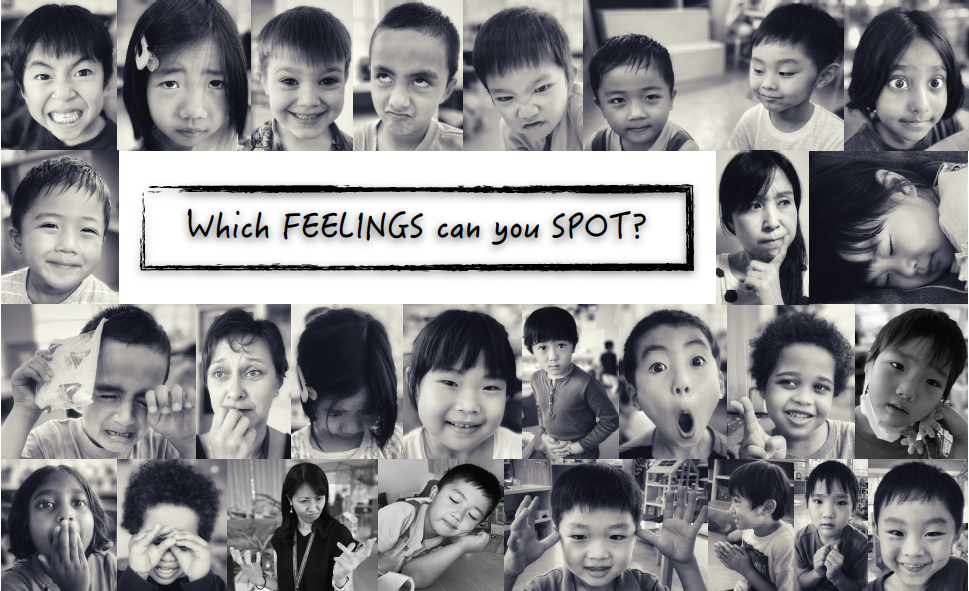
As part of their Unit of Inquiry on Who We Are, the ELC Kindergarteners have been exploring how to recognize, manage and express their feelings.
Students have begun this inquiry by identifying their own emotions and brainstorming the language and vocabulary necessary to label and explain how they are feeling. They have studied their own expressions in the mirror, observing the details in their facial expressions and body language. Students were also learning to identify the emotions of others by paying attention to their own body signals.
As the class read and discussed many books on the topic, students talked about experiencing various feelings. They also learned that no matter what feelings they experience, they are all OK. Whether they are happy or sad, scared or brave, calm or angry, they can help each other express those emotions in a safe and healthy way.
As students were learning to express their feeling appropriately, they were practicing how to use “I feel …” statements, which is the beginning of an exploration of healthy conflict resolution.
Then, the students worked hard on creating their own “Book of Feelings” using facial expressions, body language, and “I feel…” statements. When they were completed and brought home, parents were encouraged to discuss with their children when they might be feeling a certain way, share their own examples, and support them in building a rich vocabulary that will help them express how they are feeling in their home language.
The Kindergarten students also do a feelings check-in a few times a day. They stop for a minute, reflect on their own emotions, and put their names under the corresponding picture. This activity has helped the students to be more in the moment and self-aware. It is also helpful for teachers to know who needs an extra listening ear or a helping hand.
After all that, the Kindergarten students then went on to create the “Zen Zone.” This is a space they can visit when they feel strong emotions and need some time to calm down or to practice the mindfulness they have learned in their weekly Yoga class. Each student had an opportunity to bring something to the space that they thought would help them and their friends as they sit and regulate their feelings. In the end, they created a very cozy and interesting space!



